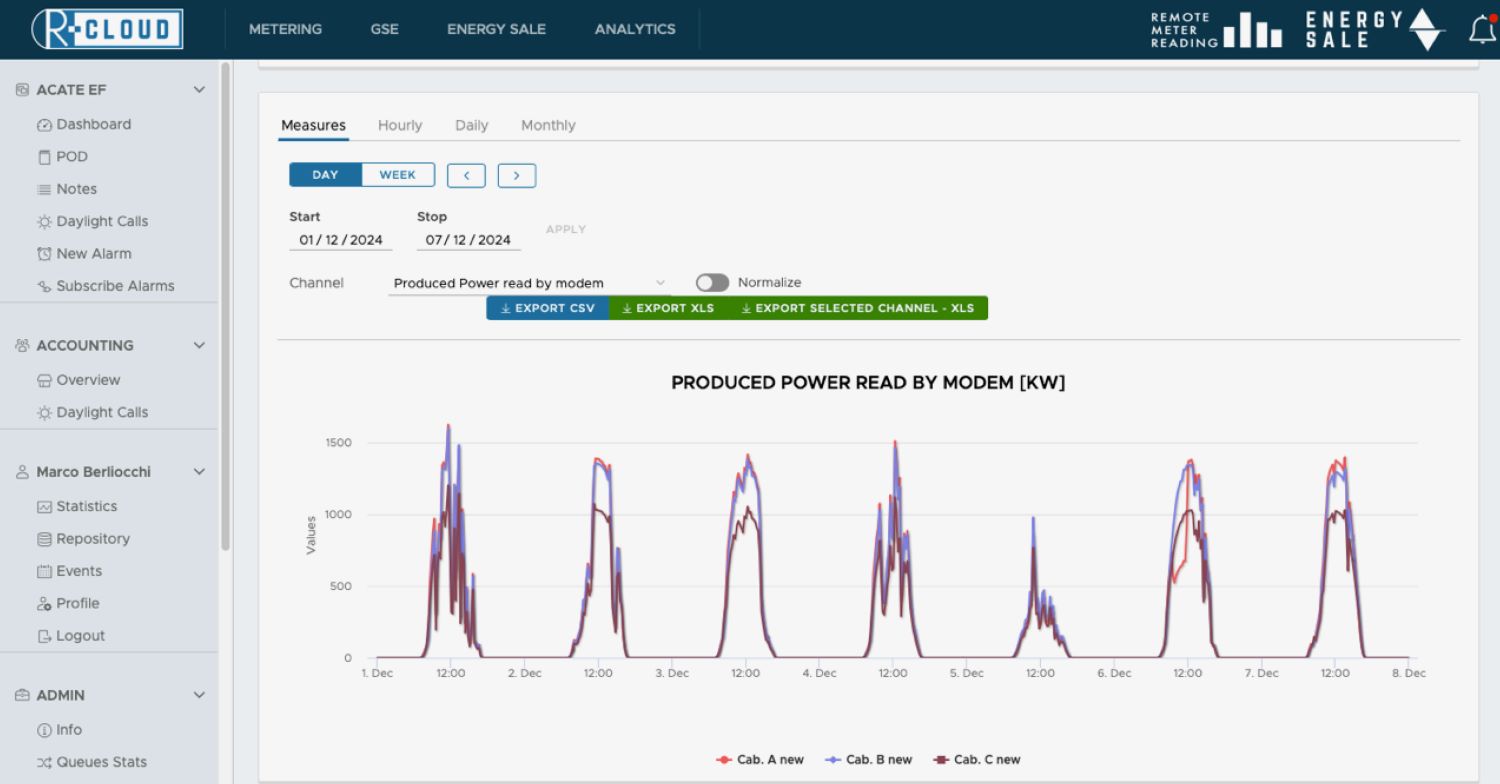With the help of the European Space Agency’s Business Incubation Centre (ESA BIC) in Italy’s Lazio region, Marco Berliocchi and his co-founder started Raptech almost 20 years ago. He and his team have since built up a successful company, supplying performance data to solar power systems across the globe.
From Office Files to Space Data
After completing a PhD in engineering, Marco started out with his company in the area of office logistics. However, increasing digitalisation was rapidly reducing the need for Raptech’s initial offer. Marco saw this as an opportunity to break into a new market: renewable energy, more specifically solar-powered photovoltaic systems. While Raptech’s core idea—automating functions to make people’s jobs easier—stayed the same, they decided to add space data to the equation: “We realised we could use satellite data to help operations and maintenance of big-scale photovoltaic installations”, Marco explains.
At the time, the amount of energy produced by a photovoltaic installation was mainly being measured using on-site, ground-based sensors. Adding information recorded by satellites greatly increases the accuracy of these measurements: “Satellite data is more reliable than the sensor in the field, because you don’t know if the sensor is dirty or working properly”, Marco adds. Instead of collecting visual images of the installations, satellites can measure the amount of energy reaching the Earth’s surface from the Sun at the location of the photovoltaic system. Inconsistencies between these measurements and how much energy the installation is producing can help indicate issues with the solar panels.

Section of the Raptech’s R-Cloud portal, displaying the power generated on a quarter-hourly basis by a photovoltaic installation over a specific range of days, remotely measured through the meters. Credits: Raptech
Raptech’s adapted business model came at an opportune moment, as Italy was starting to incentivise renewable energy technologies, which increased interest in the market. Around the same time, Marco and his team learned about the local ESA BIC. Support from the incubator was essential in their transition from logistics to the renewable energy sector, as the young company could make use of ESA’s expertise in working with satellite data.
Lessons from Across the Ocean
Since completing their incubation at ESA BIC, Raptech has expanded their customer base significantly, especially in Italy. However, Marco’s journey as an entrepreneur has taken him all over the world: to grow his technical expertise, he decided to move to the United States. Staying there for over five years, Marco was particularly impressed with the attitude toward customer service: “In the US there is this interest in the customers. I think we had to learn that, because all of us in the company are very technical engineers and maybe not really people-persons”, he says with a laugh.
Another highlight Marco took home from his time in the US is the value of technical skills in leadership positions. He believes that familiarity with the product, not only from a commercial but also a technical perspective, is crucial. When learning about the market, this helps understand the need and feasibility of the product.
Sharing Growth
In other ways, his attitude may differ from that of many founders. While some entrepreneurs prioritise growth at all costs, Marco finds this overrated: “We are not interested in being a unicorn. We like having this size of a company—not too small, not too big—because we strongly believe that the work-life balance should be maintained. You spend so much time doing this job, so it’s important that you stay well”.
Nevertheless, there are things Marco would have done differently along the way with the knowledge he has now–but, to him, that’s part of the journey: “In this job, you learn by making a lot of mistakes”. In the beginning, he recalls wanting to do “everything”, instead of deciding to focus early on. Today, Marco thinks that developing strengths in one area and building from there is the way to go. For Raptech, the time at ESA BIC Lazio helped with this focus, enhancing their skills with satellite data.
Listening and adapting to the market is essential: “Don’t just be in love with your idea, but really see if it’s needed by the market and follow the feedback”, Marco summarises. This attitude has also created a strong relationship and trust with Raptech’s customers. Word of mouth—“passaparola” in Marco’s native Italian—from customers has become their main avenue for reaching new clients, which he is very proud of.
Marco is particularly happy when he can use his company’s success to give back: Raptech is a partner of the Sopowerful Foundation, an organisation building photovoltaic installations in underprivileged areas. Raptech supported them with setting up a small installation for hospitals and schools in Malawi. “They really have an impact on people’s lives, so we are very proud that we are their partner”, Marco adds.
For the future, Marco and his team plan to keep up in the renewable energy sector: with changing rules and regulations, they are helping their customers navigate through increasing automation and reporting. By this point, however, Raptech is well-practiced in following the market and customer feedback, supported by data from down on Earth and up above.
This article was written for the occasion of the 20 years anniversary of the ESA BIC network in Europe. For the full overview of this celebration, go to the LinkedIn group by clicking on the button below.
Join the LinkedIn group